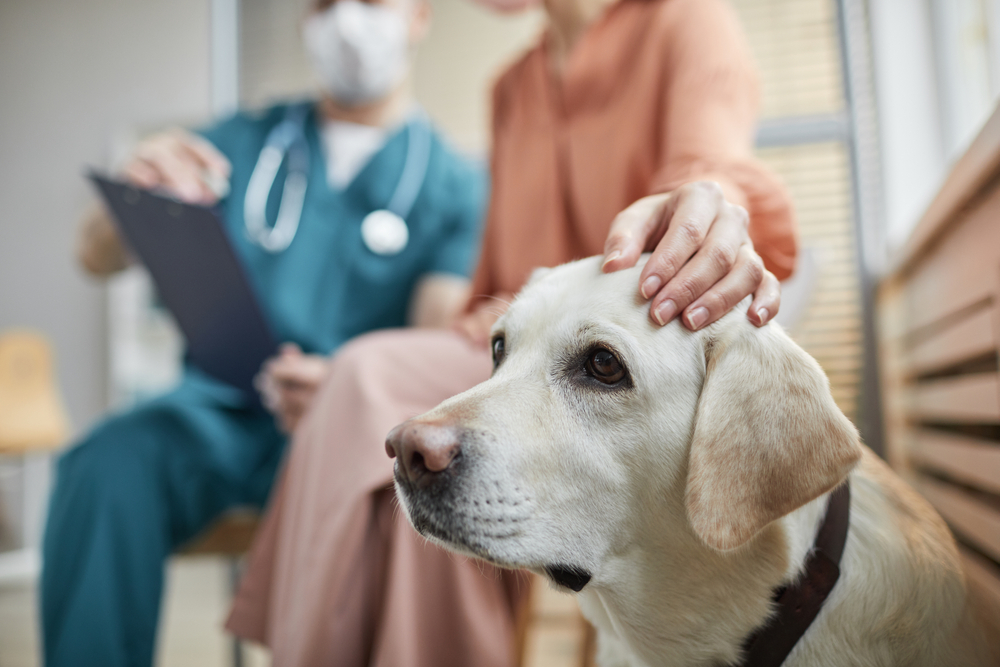What To Know Before Your Next Pet Visit

Taking your furry friend to the local veterinarian is more than just a routine errand—it’s an essential step in keeping them healthy, happy, and thriving. Whether you are a first-time pet owner or have been caring for animals for years, understanding what goes into a vet visit ensures you are making informed choices for your companion. Many pet owners wonder about things like what shots are right for your pet, what age is what check up required for, and even whether can you skip some checkups or shots. Because so much advice circulates online, it can be confusing to know what really matters and what is best left to professional guidance. This article explores what you need to know before your next visit, helping you to feel prepared, confident, and proactive about your pet’s health.
Understanding Preventive Care and Why It Matters
Preventive veterinary care is the cornerstone of responsible pet ownership. Just as humans schedule annual checkups with their doctors, pets need regular assessments to catch potential issues early. At the most basic level, preventive care involves checkups, vaccinations, parasite screenings, and dental exams. But it also includes deeper monitoring of your pet’s lifestyle, diet, and behavior. Many owners may not realize that early intervention in small problems can prevent long-term complications, sometimes saving both lives and money.
One of the most common questions is what shots are right for your pet. The answer depends on factors such as age, breed, environment, and lifestyle. Core vaccines—like those for rabies, distemper, parvovirus, and adenovirus—are recommended for most dogs. Cats usually need rabies, feline distemper, and sometimes feline leukemia depending on whether they go outdoors. Non-core vaccines, such as Bordetella for kennel cough or Lyme disease vaccines, are considered based on individual risks. A veterinarian’s role is to tailor recommendations, ensuring pets are protected without unnecessary over-vaccination.
This personalized approach is why understanding what age is what check up required for becomes so important. Puppies and kittens need far more frequent visits in their early months, while adult pets usually need yearly checkups, and seniors may require biannual assessments. When these visits are skipped, problems like dental disease, arthritis, or organ dysfunction often go unnoticed until advanced stages. By prioritizing preventive care, you’re not only extending your pet’s lifespan but also enhancing their day-to-day comfort and happiness.
Knowing the Right Timeline: From Puppies to Seniors
Every pet’s health needs evolve with age. Puppies and kittens, for instance, require multiple rounds of vaccinations during their first year of life. That’s because maternal antibodies they receive at birth eventually wear off, leaving them vulnerable to illnesses unless vaccines step in to provide immunity. During this time, you’ll likely find yourself at the vet every few weeks for boosters, exams, and advice on diet, spaying or neutering, and parasite prevention.
When owners ask what age is what check up required for, veterinarians usually recommend a tailored schedule. Young pets typically need monthly visits up until about 16 weeks, then again around 6 months for spay or neuter consultations. Once adulthood is reached, annual exams suffice for most healthy dogs and cats. These visits focus on maintaining vaccines, testing for heartworm or other parasites, monitoring weight, and checking dental health.
As pets age, their needs change dramatically. Senior dogs and cats—often classified as seven years and older—should be seen at least twice per year. These visits allow veterinarians to track arthritis, organ health, and common geriatric conditions such as kidney disease or diabetes. Bloodwork, urinalysis, and sometimes imaging become regular tools for monitoring. Skipping these visits can leave you blindsided by issues that might have been slowed or prevented with earlier detection.
Knowing the right timeline helps you structure your pet’s care with confidence, ensuring no stage of life is neglected. Just as importantly, consistent care creates a baseline of health records, making it easier to spot changes over time.
Can You Skip Some Checkups or Shots?
It’s natural to wonder whether certain appointments can be skipped, especially if your pet seems perfectly healthy. Many owners ask themselves: can you skip some checkups or shots? The short answer is no—at least not without careful consideration and veterinary input. Pets are masters at hiding illness. By the time you notice symptoms, conditions may already be advanced. For example, dental disease often goes unnoticed until it becomes severe, and kidney disease may not show signs until significant function is lost. Routine checkups are designed to detect these problems early.
Vaccinations are another area where skipping can have serious consequences. Skipping or delaying vaccines leaves pets vulnerable to contagious diseases. Rabies, for instance, is not only fatal for pets but also poses a public health risk to humans. Some vaccines are legally required depending on where you live, making them non-negotiable. Even non-core vaccines should not be dismissed without consulting a veterinarian who understands your pet’s risk factors.
That said, not every pet needs every vaccine. This is where veterinary guidance ensures you’re making the right decisions. For example, if your cat is strictly indoors and never interacts with other animals, your vet may not recommend the feline leukemia vaccine. Similarly, if you live in an area where Lyme disease is rare, your dog may not need that particular shot. Rather than skipping arbitrarily, the best approach is to have an open conversation with your veterinarian about risks, lifestyle, and safety.
Ultimately, the idea of skipping should be reframed as tailoring. Instead of bypassing important care, the goal should be to personalize care so that your pet receives only what is necessary for their unique situation.
Pet Shots – Do’s and Don’ts
Vaccines are one of the most hotly debated topics in pet care, but veterinarians agree they are essential for preventing dangerous diseases. Understanding the pet shots – do’s and dont’s makes the process less confusing and more effective.
One of the key “do’s” is to always keep a record of your pet’s vaccinations. Whether it’s a printed card or a digital record, having an up-to-date history prevents errors and ensures your pet never misses an important booster. Another important “do” is to follow your vet’s schedule closely, especially for young pets. Puppies and kittens who miss booster appointments may not build full immunity, leaving them at risk despite being vaccinated.
On the “don’t” side, one of the biggest mistakes is self-administering vaccines without professional training. While farm supply stores sometimes sell vaccines, improper storage, handling, or dosing can render them ineffective. Worse, without a veterinarian’s oversight, potential reactions may go unnoticed or untreated. Another “don’t” is assuming all vaccines are equal. Core vaccines are crucial for all pets, but non-core vaccines are highly situational. Vaccinating against something your pet has no exposure risk to may not be necessary, while skipping a vaccine your pet does need could be dangerous.
Finally, don’t ignore side effects. While most pets tolerate vaccines well, some may experience mild lethargy or soreness. Rarely, more severe reactions like swelling, vomiting, or difficulty breathing can occur. Always monitor your pet after vaccinations and contact your vet if you notice unusual symptoms. Understanding these do’s and don’ts makes you an active participant in your pet’s healthcare, ensuring vaccines provide maximum protection with minimal risk.
Making Vet Visits Less Stressful for You and Your Pet
A trip to the vet can be overwhelming—not just for pets, but also for their owners. Anxiety often stems from not knowing what to expect or how your pet will react. Preparing ahead of time can make the experience smoother. Bring along your pet’s medical records, a list of any questions you may have, and notes about recent behavior changes. These small steps help your veterinarian give the most accurate advice and care.
For pets, the stress often comes from the unfamiliar sights, smells, and sounds of a clinic. Dogs may benefit from calming pheromone sprays, while cats often feel safer in a carrier that smells like home. Scheduling visits during quieter clinic hours can also reduce stress. In some cases, vets may recommend pre-visit medications for highly anxious pets.
Another way to ease stress is by creating positive associations. Rewarding your pet with treats, playtime, or praise before and after visits teaches them that the vet isn’t always a scary experience. With time and consistency, many pets grow more tolerant of regular visits.
Owners also benefit from understanding the flow of a visit. A typical appointment may start with a physical exam—checking ears, eyes, teeth, heart, lungs, and abdomen—before moving on to vaccines or lab tests. Knowing this structure helps you anticipate what’s happening and feel more in control. Reducing stress, for both you and your pet, ensures visits are more effective and less dreaded, making consistent care easier to maintain.
Conclusion
Your pet’s health and happiness depend on your commitment to consistent veterinary care. Understanding what shots are right for your pet, recognizing what age is what check up required for, and knowing that while it may be tempting to ask if can you skip some checkups or shots, the answer is rarely yes, gives you a foundation for responsible decision-making. Following the guidelines for pet shots – do’s and dont’s ensures vaccinations are both safe and effective, while also giving you peace of mind.
At every stage of your pet’s life, from energetic puppy or kitten to wise senior companion, the right balance of preventive care, timely checkups, and personalized attention makes all the difference. By working with your veterinarian as a trusted partner, you ensure that your beloved companion receives care tailored to their unique needs.
Vet visits may seem routine, but they represent some of the most impactful moments in your pet’s life. Each checkup, shot, and exam contributes to a longer, healthier, and more joyful journey together. So the next time you schedule a visit, walk in with confidence knowing you’re doing one of the best things possible for your pet’s well-being.
Need a Small Animal Hospital in Pauls Valley, OK?
At Williamsburg Small Animal Hospital, we are dedicated to ensuring the well-being of your pets, especially during the scorching summer months. If you have any concerns about keeping your furry friends safe and healthy in the heat, don’t hesitate to reach out to us. Our team of experienced veterinarians is here to provide you with personalized advice and top-notch care. Contact us today to schedule an appointment or to learn more about our services. Let’s work together to keep your pets safe and happy all summer long!
